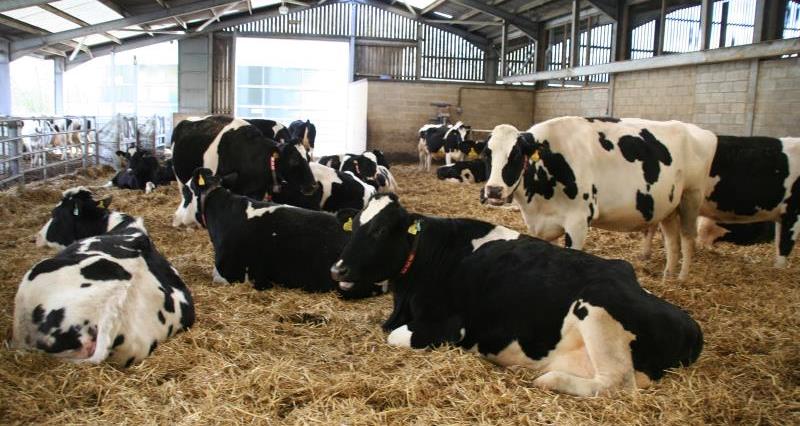The segment included interviews with RABDF Gold Cup winner Neil Baker who keeps 1,700 cows indoors all year round and former farmer Neil Darwent who is behind a scheme called Free Range Dairy - participating farms must graze for 180 days each year (night and day) – except for derogations in severe weather conditions.
So, does size matter and can no matter how big a dairy farm, can it be linked to animal health and welfare?
Dairy farmers in the UK are very proud of what they produce. The standards of health and welfare in the UK are as good, or even better, than our European and global competitors. The most important thing for consumers is to support our farmers, in the knowledge that whatever scale or system they farm, the health and welfare of the herd is of paramount importance. And for that to continue we need our customers to continue buying British dairy products.
NFU graduate trainee Rachel Hibberd has visited a dairy farm to find out whether big is bad, as some animal welfare campaigners would have us believe?
She writes:
When I first heard about these so-called mega dairies and cows being kept indoors, my first thoughts were that this is unfair, sad and unnatural. My instinct told me they should be outside and roaming around in the fresh air. But this view rapidly changed when I recently visited a farm which keeps its cattle indoors.
With 1,400 dairy cows, it would be classed as a ‘mega dairy’ according to recent NGO reports. Feeling slightly apprehensive about seeing this set up, I turned the corner of the surprisingly clean yard and breathed a huge sigh of relief. The sheds were spacious, open and bright. The cows were happily mooching about, some snoozing, some eating and some walking around visiting their mates. They had plenty of room; one would never have guessed there were 1,400 cows split over the two sheds.
It is this that helps me see both sides of the argument. I am an animal lover and I understand that consumers want to buy products that come from happy cows. It must be considered, that just because a farm has more than 700 cows it does not mean the animal welfare is worse.
The attention and care the cows get on a large scale farm is equal to, if not more, than a small scale farm. Large farms usually have more money to spend on farm workers and on-site vets which in turn provides more time spent monitoring the herd.
And with regards to the environmental impacts of large dairy farms, it is not all doom and gloom. The dairy industry is working hard to implement environmentally friendly methods. For example, 77% of dairy holdings in the UK are actively planning nutrient management, 78% are using water efficient methods and on-farm pollution incidents have dropped by 15% in the past two years. It is in the farmer’s best interest to reuse resources and conserve energy, as this reduces their spending and benefits the farm business long term. If they can, they will.
After spending time with dairy farmers from the South East of England, I realise that they are genuinely passionate and care about both their livestock and the environment. They love the countryside as much as I do, and through difficult times of low commodity prices, we should be encouraging them as much as possible to keep farming, whether that’s 100 cows or 1,000 cows. It is not the size of a farm that matters. It is the quality of care the animals get, along with responsible and efficient production.
